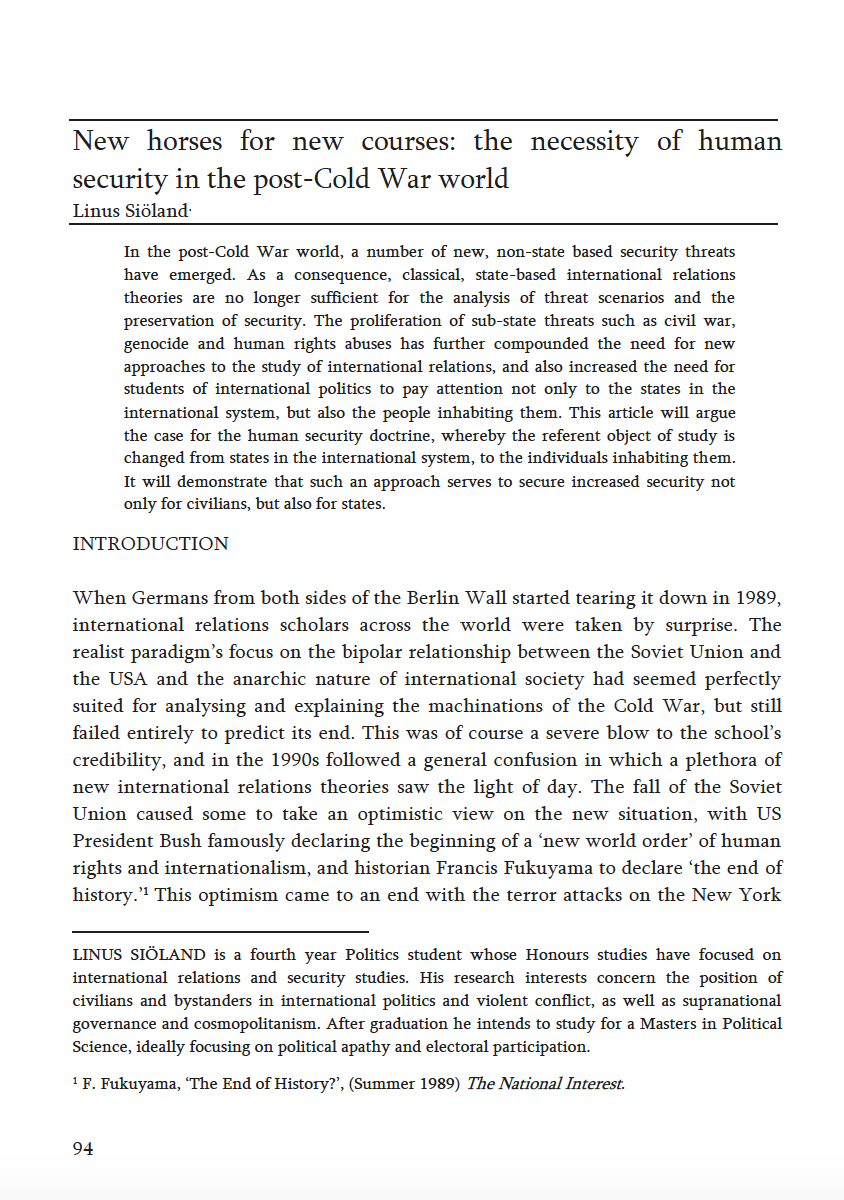New horses for new courses
the necessity of human security in the post-Cold War world
DOI:
https://doi.org/10.36399/GroundingsUG.7.220Keywords:
R2P, Responsibility to Protect, Human Security Doctrine, Individual Approach, United NationsAbstract
In the post-Cold War world, a number of new, non-state based security threats have emerged. As a consequence, classical, state-based international relations theories are no longer sufficient for the analysis of threat scenarios and the preservation of security. The proliferation of sub-state threats such as civil war, genocide and human rights abuses has further compounded the need for new approaches to the study of international relations, and also increased the need for students of international politics to pay attention not only to the states in the international system, but also the people inhabiting them. This article will argue the case for the human security doctrine, whereby the referent object of study is changed from states in the international system, to the individuals inhabiting them. It will demonstrate that such an approach serves to secure increased security not only for civilians, but also for states.

Downloads
Published
Issue
Section
License
Copyright (c) 2014 Linus Siöland

This work is licensed under a Creative Commons Attribution 4.0 International License.
The CC BY 4.0 license is a Creative Commons license. This is a non-copyleft free license that is good for art and entertainment works, and educational works. It is compatible with all versions of the GNU GPL; however, like all CC licenses, it should not be used on software. People are free to: Share — copy and redistribute the material in any medium or format; Adapt — remix, transform, and build upon the material for any purpose, even commercially. The licensor cannot revoke these freedoms as long as you follow the license terms. But they must conform to the following terms: Attribution — You must give appropriate credit, provide a link to the license, and indicate if changes were made. You may do so in any reasonable manner, but not in any way that suggests the licensor endorses you or your use. No additional restrictions — You may not apply legal terms or technological measures that legally restrict others from doing anything the license permits.
Please check individual article PDF copies to see if any additional restrictions apply.







